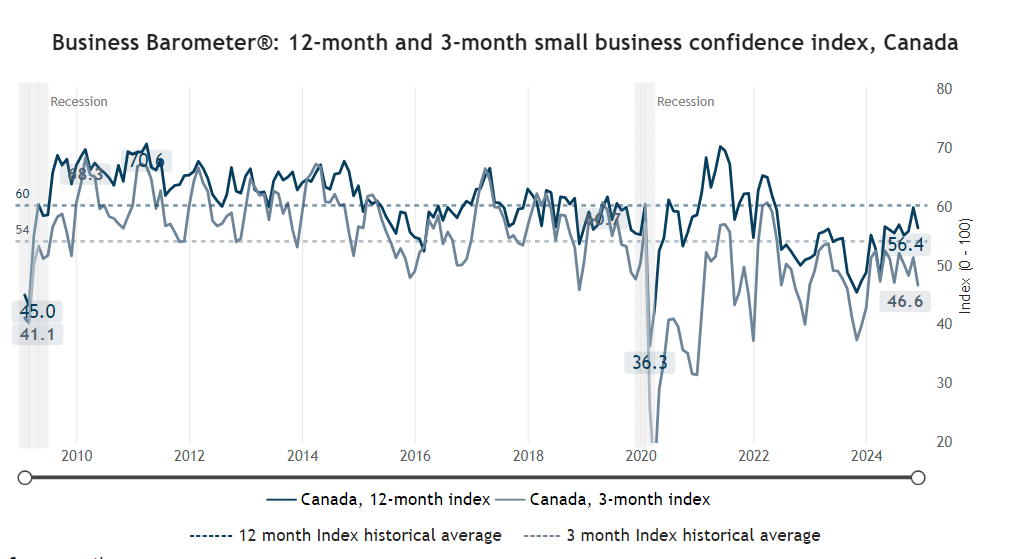
U.S. tariffs, Canada Post strike among factors dampening optimism across Canada: report

Small business confidence in Canada has taken a hit, according to the Canadian Federation of Independent Business.
The long-term business optimism index, which measures 12-month expectations, fell to 56.4 in December, a three-point decline from the previous month. The short-term index, which reflects a three-month outlook, dropped five points to 46.6.
“The combined challenges of U.S. tariff threats, uncertainty stemming from the recently announced and temporary GST holiday, and the Canada Post strike have created a ‘perfect storm,’ reversing the upward trend in business optimism observed in recent months,” says the report.
The CFIB described these shifts as a reversal of the upward trend seen earlier this year.
“The current state of business health deteriorated slightly in December,” it noted in its report, pointing to compounding economic pressures.

Confidence dipped modestly in New Brunswick, Manitoba, and Saskatchewan, with most provinces taking a cautious "wait-and-see" approach. Other regions saw little movement, with optimism largely stagnant.
P.E.I. and Alberta have the most confidence, with a 12-month outlook of 65.3 and 61.2, respectively, while Newfoundland and Labrador and Saskatchewan were bottom of the list, at 52.8 and 54.2, respectively.
Certain industries remain relatively optimistic, found the CFIB survey. The information, arts and recreation (67.7); financial services (66.3); and professional services (62.6) sectors continue to lead in confidence levels. Additionally, the manufacturing and construction sectors posted optimism indexes above 60.
However, the CFIB cautioned that these gains could be short-lived if proposed U.S. tariffs come into effect in 2025.
Lower down in the confidence levels were hospitality (51.7) and retail (52).
Inflation: Price and wage growth showed minor shifts in December. The average price increase indicator held steady at 2.6%, while the average wage increase dipped to 2.2%.
Labour market: Full-time staffing plans remain subdued, with nearly equal proportions of businesses planning to hire (15%) and lay off (17%) workers. High tax and regulatory expenses (68%), wage costs (65%), and insurance costs (65%) were cited as the primary barriers to growth.

Supply chain issues: The report also highlighted mounting supply chain challenges. Inventories fell by seven points, while unfilled orders rose slightly. Businesses reporting distribution constraints increased by five points compared to the previous month.
The findings are based on responses from 631 CFIB members collected between December 3 and 9.